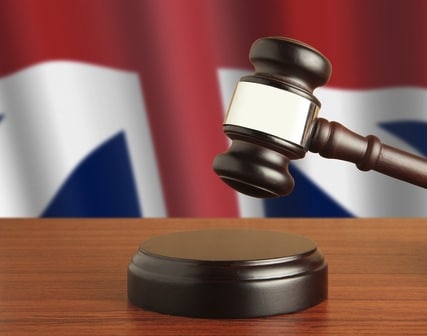
UK ISPs will have to write warning letters to illegal downloaders identified by rightsholders, after the ongoing protests of two of the largest ISPs were apparently floored by a court ruling on Tuesday finally.
Under the Digital Economy Act, passed controversially in mid-2010, copyright holders could send a “copyright infringement report” to ISPs with evidence of unauthorised downloading on their network. ISPs must notify subscribers against whom the allegations are made, providing education about legal alternatives, evidence and guidance on an appeal pathway.
But the scheme remains unimplemented because BT (NYSE: BT) and TalkTalk were granted a judicial review of the act in March 2011. They were ruled against a month later and appealed to the Court Of Appeal, which ruled against them once more on Tuesday in what may have been their final avenue (full ruling).
But the court did give ISPs one small concession – they will no longer be forced to foot 25 percent of the costs when alleged infringers appeal to an appeal body that will be established.
That means the UK government will need to amend the previously-published Draft Statutory Instrument outlining the sharing of costs.
Ofcom, too, will need to amend the draft code under which it will govern the scheme – a spokesperson tells paidContent it cannot finalise the code until the government’s amendment is made.
“Government will seek to make this change as soon as possible,” the UK government’s Department for Culture, Media & Sport tells paidContent. “We are pleased the Appeal Court has upheld the original ruling that the Digital Economy Act is a lawful and proportionate response to the threat posed by online piracy.”
BT tells paidContent: “We have been seeking clarification from the courts that the DEA is consistent with European law, and legally robust in the UK, so that everyone can be confident in how it is implemented. Now that the Court has made its decision, we will look at the judgment carefully to understand its implications and consider our next steps”.
Effectively, it is considering whether it can appeal to the European Court of Justice.
Keep calm and carry on
Many digital libertarians will now protest vociferously about digital rights and internet disconnection. But today’s news stops actually at letter-writing…
Although the Digital Economy Act made provision for ISPs to level technical measures against repeat offenders – like bandwidth shaping and speed throttling – the UK government would only compel Ofcom to order such measures of ISPs if Ofcom’s later research finds that latter-writing has no effect.
In fact, one of the bluntest of proposed measures, blocking of infringing websites themselves, was discarded after Ofcom’s advice that it would be unworkable.
Even if Ofcom’s research suggests a few years of letter-writing has had no effect, a spokesperson for the regulator tells paidContent the proposal for the technical measures would have to clear both European lawmakers and UK scrutiny committees. The European Commission and many parliamentarians are committed believers in internet connections as a universal right.